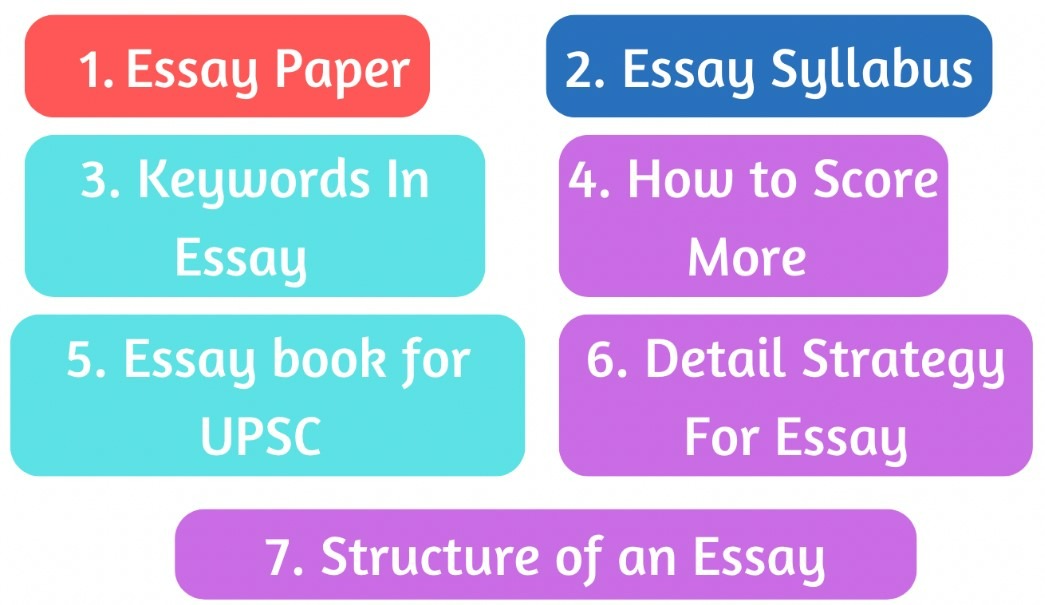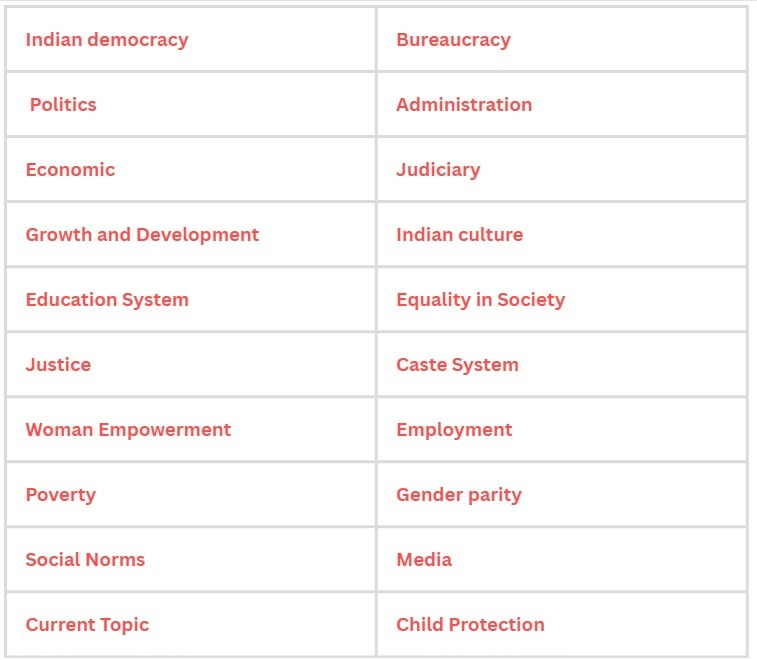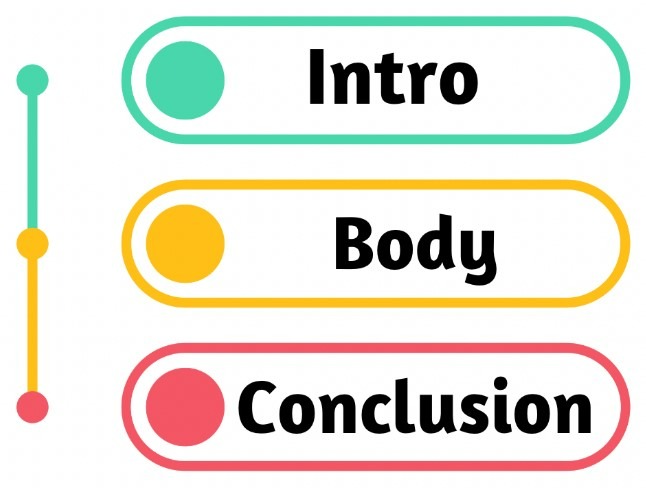There are no items in your cart
Add More
Add More
| Item Details | Price | ||
|---|---|---|---|
5. Essay Book for UPSC
Several books are available that provide insights into how to approach essay writing for UPSC.
2. Develop a Strong Foundation:
3. Improve Writing Skills:
4. Analytical Approach:
5. Thesis Statement:
6. Logical Flow of Ideas:
7. Balance of Perspectives:
8. Varied Sentence Structure:
9. Relevance to the Topic:
10. Current Affairs Integration:
Integrate current affairs into your essays to demonstrate a real-world application of your knowledge. Use relevant examples and case studies.
11. Practice Previous Year Papers:
Analyze previous years' essay papers to understand the types of topics and the expectations Practice writing essays on a variety of topics to familiarize yourself with different themes.
12. Time Management:
-Practice writing essays within the allotted time frame (3 hours for both essays). This helps in developing time management skills for the actual exam.
13. Peer Review and Feedback:
Seek feedback from peers, mentors, or teachers. Constructive criticism can help you identify areas for improvement.
Review and learn from sample essays to understand the qualities of a well-written essay.
14. Revision:
Regularly revise and update your knowledge base. This will help you recall relevant information during the exam.
15. Be Concise:
Important to present a comprehensive analysis, avoid unnecessary elaboration. Be concise and to the point.
16. Emphasize Quality over Quantity:
- Focus on the quality of your content rather than the quantity. A well-articulated, concise essay is often more effective than a lengthy one.
17. Stay Calm During the Exam:
- Manage stress during the exam. Take a few moments to plan your essay before starting to write, and remain focused on your arguments.
Remember that the essay paper is an opportunity to showcase your understanding, analytical skills, and articulation. Practice, constructive feedback, and continuous improvement are key to excelling in the essay paper of the UPSC Civil Service Exam.
7. Structure of an Essay
Breaking an essay into paragraphs is the typical method of structuring. This approach includes an introduction, a conclusion, and body paragraphs. The body paragraphs are where the writer will incorporate all of their content.
Introduction
The essay introduction is critical in captivating the reader and establishing a clear direction for the essay. Achieving clarity and conciseness is essential, so it's important to have a well-defined thesis statement that encapsulates the central argument. Use an engaging hook like a thought-provoking question or anecdote to grab the reader's attention. Provide a brief contextual background and establish the relevance of the topic, while outlining the scope and limitations of the essay. Make sure to offer a clear roadmap of the essay's main points and maintain an appropriate tone. Ambiguity should be avoided, and originality is key--be economical with words. A smooth transition to the body paragraphs should be crafted, and revisions made for clarity and impact. Consider the timing of your introduction in the overall writing process. By including these elements, you can create an introduction that effectively sets the stage for an engaging essay.
Body
When it comes to writing a winning essay for the UPSC Mains Exam, nailing the organization is key. Each paragraph should be like a well-oiled machine, with a snappy topic sentence at the beginning, and convincing evidence to back it up. Don't be afraid to dig deep and analyze your arguments with a critical eye. Keep your thesis statement in mind at all times, and use smooth transitional phrases to glide gracefully between each paragraph. It's also important to show that you're aware of different perspectives, so present a balanced view. Keep things concise and avoid droning on about irrelevant details. Every paragraph should be laser-focused on the topic and thesis, demonstrating your mastery of the subject matter. To keep things fresh, sprinkle in some real-world examples and avoid repeating yourself. And of course, before submitting, give it a good once-over, making sure your ideas are clear, and your arguments flow seamlessly. Follow these tips, and you'll be well on your way to acing your UPSC essay!
Conclusion
A well-written conclusion is paramount to a successful essay. Don't forget that a strong finish is just as important as a strong opening, as both can significantly improve your grades.
There are a few proven ways to conclude your essay effectively. You can restate the main points with different phrasing, suggest a path forward, or add a personal comment or relevant anecdote. Another tactic to consider is a cyclic return, where you revisit the discussion introduced in the introduction.
Regardless of the chosen approach, the conclusion should always have a positive outlook and see the silver lining in the situation. Keep it clear, concise, and focused.
How to Write Essay in UPSC?
The Essay Paper in UPSC is no joke! It's the big scorer among the seven papers and can make or break your merit ranking. So, how can you excel? The key is to practice, practice, practice! UPSC Essays have a formal structure, meaning they're less emotional and more factual. Think of it as your chance to showcase your authority on the topic. You'll need to back up your points with hard-hitting stats from government data, recent reports, indices, and the like. But, hold on to your pen, there's more! UPSC Essays don't permit first-person references or chit-chat style, so you need to keep things serious and straightforward. Let's get ready to smash those essays and ace the IAS Exam!
To summarize, the final list of actions for writing an essay for UPSC exams is as follows:

 1.
Essay Paper for UPSC
CSE
1.
Essay Paper for UPSC
CSE
































